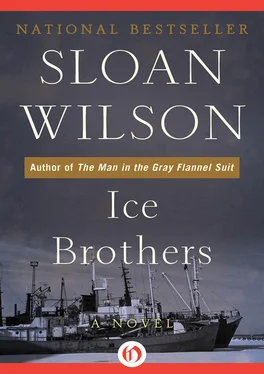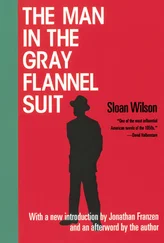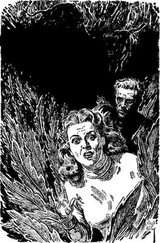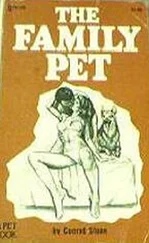For the first time Mowrey’s criticism flustered the old fisherman. His face turned a deeper shade of russet red and he stuttered a little when he said, “Sorry, sir. I j-j-just do the best I can.”
Ordinarily Mowrey would have given Paul hell for the inefficient stowage of the cargo, on the theory that the executive officer was responsible for whatever went wrong aboard the ship. The shifting of his wrath to Seth, in addition to his recent efforts to teach Paul as much as possible about the running of the ship, made Paul realize that his status had changed or was in the process of changing from scapegoat to protégé. Perhaps his being chosen as the only officer allowed to go ashore that night with the captain was further proof of that. The thought filled Paul with strongly contradictory emotions; relief, renewed ambition, pride in learning to do his job well, and also a disturbing sense of disloyalty to the others, especially Nathan. In the unending war between the captain and the other officers, he had always felt one with Nathan and Seth. Now was he supposed to change sides?
Although it was six-thirty in the evening when the captain and Paul went ashore, the sun was still high in the sky. As soon as they walked off the wharf and around a stone warehouse on the shore, a great many Eskimo dogs began to bark, and soon they were surrounded by a pack of about thirty of them, which growled and bared their fangs with all the ferociousness of a pack of wolves about to attack. Paul, who had never been afraid of dogs, was terrified as one huge gray beast with eyes that looked yellow pressed forward and snapped its great jaws only a few inches from his ankles.
Paul tried to say something soothing, and he put his hand out to pat the snarling animal.
The big dog crouched for a spring and was about to take off Paul’s hand when Mowrey exploded.
“Back off, you sons of bitches!” he roared, and to Paul’s astonishment, growled and roared more like a lion than a man.
The dogs cowered and retreated a few yards, but formed a circle around them. Mowrey stooped, and though there was no small stone in the frozen mud under their feet, he straightened up with an exaggerated pantomine of throwing and gave more roars. The pack of dogs turned tail and ran.
“Lesson one,” Mowrey said with grim satisfaction, “sled dogs are not pets. The Eskies treat ’em rough and don’t even feed ’em much when they ain’t using them. Sled dogs will kill you if you fall. They kill kids all the time up here. The Eskies look at that the way we look at car accidents.”
“I see,” Paul replied, still finding it hard to believe.
“You got to talk to a sled dog in his own language,” Mowrey continued. “And one thing they know is to run when it looks like a man is throwing a stone.”
After passing a sod warehouse, they saw the village ahead of them. Paul had half expected to come upon a collection of igloos or primitive huts, such as he had seen in schoolbook illustrations, and was surprised to see what appeared to be a toy village, about a dozen miniature cottages and a church, all painted brick red with white trim.
“The Danes bring in wood for construction,” Mowrey explained. “It’s expensive and so is coal, so they keep everything small.”
A half dozen children dressed as Greenlanders, but with faces of varying cast and hue, greeted them with a fine mixture of shyness and exuberance, laughing but keeping their distance. The youngsters led them toward the largest of the houses, which had neatly painted white shutters and gingerbread trim, but was no bigger than a two-car garage. The frozen mud around it had been raked during a thaw and looked curiously neat compared to the lane which they had been following, a stony path littered by dog droppings, heaps of cans and other trash awaiting a thaw for burial. On this bright spring night the temperature was not much below freezing and there was no sting in the soft wind from the sea, but it was cold enough to rob dirt of any odor. The only smell in the crystal air was the acrid tang of soft coal burning in small stoves so carefully tended that almost no smoke came from the stone chimneys of the little houses.
As they approached the biggest house, the front door opened and Peter Anderson, the tall Dane who had boarded their ship, came out to greet them. When he had boarded the Arluk to lay down the law about enlisted men coming ashore, he had appeared stern to the point of hostility, but now his whole manner had changed and he was the deferential host. He ushered Paul and Mowrey through a vestibule so small that Mowrey had to edge his great shoulders sideways through rows of sealskin parkas hanging on the walls into a livingroom which was only about twelve feet square and which looked even smaller because it was crowded with eight Danes, all of whom looked enormous with their heads almost touching the ceiling. They were all wearing their best European clothes, and the three women had put on dark silk dresses like short evening gowns. One of these women was maybe sixty or seventy; one was about thirty, blonde and pretty, if a little gaunt, and the third was a fat, round-faced woman who could have been twenty-five or forty-five, and who wore a low-necked gown which she apparently had bought before gaining much of her weight. The top halves of her huge breasts bulged from this in a way that might have struck Paul as grotesque in Boston, but he had already been away from women long enough to make the display almost unbearably attractive.
Peter Anderson gave formal introductions. None of the Danes was proficient at English, but all knew a few words. The fat woman’s name was Hilda. She had a circular, curiously babyish face above her triple chins and spoke in a high childish voice, interspersed with giggles, which made her startling bosom quiver in its tightly buttoned black silk bindings. Paul was wryly amused at himself for considering her beautiful and charming. He was disappointed when she appeared to have eyes only for Mowrey, who was, after all, much older than she, and whose beefy, old fighter’s face had always struck Paul as exceedingly ugly. But he was still the captain.
The old man, Paul saw with surprise, possessed a brand of social charm which he never displayed aboard ship. He was courtly, formal without being unfriendly, and curiously dignified as he accepted the biggest armchair in the crowded room and smiled at the people who passed him drinks, canapés, and sat in a semicircle around him to pay court. Here, after all, was the commanding officer of the long-awaited supply ship, an American fighting man whose strength, wisdom and courage somehow appeared to be boundless. These Danes, who had lost their own country to the Germans, and some of whom had come to Greenland as refugees, treated him as an oracle, as well as a savior. As soon as the drinks (a kind of sweet warm martini which would have horrified Paul in Boston but which now tasted marvelous) were passed, everyone asked Mowrey his opinion of how the war was going.
“Now it’s not going to be hard to take them Nazis,” Mowrey said with a casual tone. “We can do it fast or we can do it slow. The thing is, we can take them with less loss of life if we take time for a big buildup first and the proper strategy. No one wonders whether we can beat the Germans. It’s like killing a mad dog. First you have to get yourself a net and then you want to put it over his head without taking any chance of being bit.”
This assessment of the military scene seemed well received. Hilda edged the invisible little chair under her so close to the captain that her great bosom almost rested on his knees. Which caused Mowrey to take off his dark glasses, a most unusual gesture, and to pat her shoulder affectionately. She in turn handed him a square of toast with a particularly succulent piece of smoked salmon.
Читать дальше












